2024 Scholars
SELECTED PARTICIPANTS
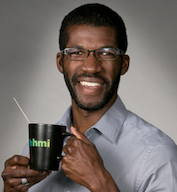
Biafra
Ahanonu
University of California
San Francisco

Thiago
Arzua
Columbia University
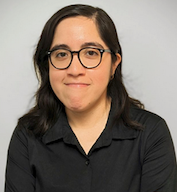
Mariela Cortés
López
Weill Cornell Medicine and New York Genome Center
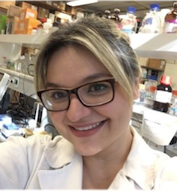
Maria Fernanda
Forni
Yale University

Noa
Katz
Stanford University
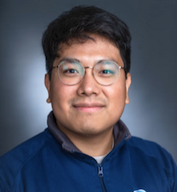
Carlos Mendez-
Dorantes
Dana-Farber Cancer Institute
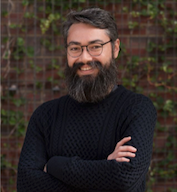
Edgar Medina
Tovar
University of Massachusetts Amherst
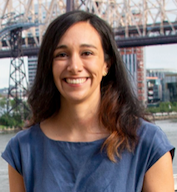
Joan
Pulupa
Columbia University

Jarrett
Smith
Whitehead Institute
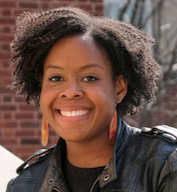
Zuri
Sullivan
Harvard University
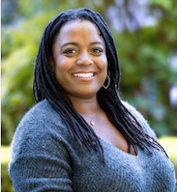
Victoria “Vicky”
Watson-Zink
Stanford University
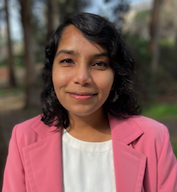
Akanksha
Thawani
University of California,
Berkeley



2024 Exceptional Scholar Biographies

Biafra Ahanonu, Ph.D.
University of California San Francisco
Biafra Ahanonu, PhD is an HHMI Hanna H. Gray Fellow at UCSF (Anatomy) under Prof. Allan Basbaum, studying the neural coding of pain in the spinal cord of behaving animals and molecular properties of pain circuits. As an NSF Graduate and HHMI Gilliam Fellow at Stanford (Biology) under Prof. Mark Schnitzer, he studied pain and locomotion/decision-making neural codes in the amygdala and striatum, along with developing imaging analysis tools (e.g. CIAtah,). While at MIT (BSc, Biology and Brain & Cognitive Sciences), he worked in labs in the USA (MIT, HHMI Janelia), Switzerland, Spain, Mexico, and Singapore.

Thiago Arzua, Ph.D.
Columbia University
Born and raised in Curitiba, Brazil, Dr. Thiago Arzua is now a postdoctoral scientist at Columbia University’s Zuckerman Institute and a Leon Levy Scholar. He currently studies how traumatic experiences are passed down through multiple generations. Before that, he completed his Ph.D. in neuroscience at the Medical College of Wisconsin, where he used stem-cell derived brain organoids to study neurodevelopment. Outside the lab, Dr. Arzua also engages and fights for diversity and equity within science, being a co-founder of Black In Neuro, as well as a science policy ambassador for the Society for Neuroscience.

Mariela Cortés López, Ph.D.
Weill Cornell Medicine and New York Genome Center
Mariela Cortés López is a postdoctoral researcher in the lab of Dr. Dan Landau at WCM and NYGC. She earned her PhD in biology from the Johannes Gutenberg University of Mainz, Germany, where she studied the influence of mutations in splicing of cancer-relevant genes. Currently, her primary research focuses on dissecting the mechanisms of RNA regulation at the single-cell level, particularly in the context of cancer. Her work integrates long-read sequencing with single-cell multi-omics assays, allowing the study of mutations in RNA splicing factors and their intricate interplay with other layers of regulation, directly in human samples.

Maria Fernanda Forni, Ph.D.
Yale University
Dr. Maria Fernanda Forni is a cell and molecular biologist and a Pew Postdoctoral Fellow at the Molecular, Cellular, and Developmental Biology Department in the Horsley Lab at Yale University. Her overarching goal is to understand how metabolism regulates cell fate and function. For that, she uses the skin as a model to investigate how stem and immune cells are regulated by energetic substrate availability and how metabolic changes regulate cell fate. She earned her BSc in Biology from the University of São Paulo and her Ph.D. in Biochemistry and Molecular Biology from the University of São Paulo with a period at the Stem Cell Center of Cambridge University, UK.

Noa Katz, Ph.D.
Stanford University
Noa Katz is a Stanford Science Fellow and an EMBO and Fulbright postdoctoral scholar at Stanford University. She earned a doctorate at the Technion, Israel Institute of Technology, and came to Stanford as a postdoctoral scholar in 2021. She pursued research at the intersection of engineering and the life sciences. Katz uses biomolecular gene circuits to understand and manipulate the nervous system with therapeutic applications. She also received the Weizmann Institute of Science-Israel National Postdoctoral Award for Advancing Women in Science.

Carlos Mendez-Dorantes, Ph.D.
Dana-Farber Cancer Institute
Carlos Mendez-Dorantes, Ph.D. is a postdoctoral fellow in the laboratory of Kathleen Burns, M.D., Ph.D. at the Dana-Farber Cancer Institute. His research focuses on investigating the regulation and mutational consequences of LINE-1 retrotransposons, which become deregulated in human cancers. His work is supported by a Jane Coffin Childs Postdoctoral Fellowship Award. He completed his Ph.D. in molecular biology in the laboratory of Jeremy Stark, Ph.D. studying the regulation of the DNA repair pathway Single Strand Annealing, which uses homologous sequences flanking chromosomal breaks and results in genomic deletions. His graduate work was supported by a Ford Foundation Predoctoral Fellowship.

Edgar Medina Tovar, Ph.D.
University of Massachusetts Amherst
Edgar was born and raised in Colombia, where he completed B.Sc.s in Biology, Microbiology, and a M.Sc. in Microbiology at Universidad de Los Andes. He obtained a Ph.D. in Genetics and Genomics under a Chancellor’s Scholarship from Duke University. Under the mentorship of Dr. Nicolas Buchler, Edgar reconstructed the evolution of fungal cell cycle control and developed the first genetically tractable chytrid fungus. Currently, he is an HHMI Hanna H. Gray Postdoctoral Fellow in the laboratory of Dr. Lillian Fritz-Laylin at UMass Amherst, dissecting the mechanisms of chytrid morphogenesis and cytokinesis.

Joan Pulupa, Ph.D.
Columbia University
Joan Pulupa fell in love with microscopy as an undergraduate. She graduated from Goucher College with degrees in physics and biology. Driven by her fascination with molecular machines, she pursued her Ph.D. at Rockefeller University with Professor Sanford M. Simon. At Rockefeller, she developed techniques to monitor protein dynamics in living cells using polarized light microscopy. Now at Columbia University, Dr. Pulupa uses live-cell microscopy to study gene regulation and genome organization in olfactory neurons. Dr. Pulupa is committed to building an inclusive laboratory where trainees come together to do science, learn, and grow into future leaders.

Jarrett Smith, Ph.D.
Whitehead Institute
Jarrett received his PhD from The Johns Hopkins University School of Medicine while working in the laboratory of Geraldine Seydoux. There, he studied the dynamic regulation of P granules, membraneless organelles of the C elegans germ line. After contributing to our understanding of how the formation of membraneless organelles is regulated, he began questioning their function. He is now an HHMI Hanna Gray Fellow doing his postdoctoral work in David Bartel’s lab at the Whitehead. Jarrett wants to ask how stress granules, another class of membraneless organelle, and their master regulators, the G3BPs, affect cellular function during stress.

Zuri Sullivan, Ph.D.
Harvard University
Zuri earned an AB in Molecular and Cellular Biology from Harvard University, where she studied M. tuberculosis pathogenesis in the lab of Dr. Eric Rubin. After college, she studied human immunity to HIV and tuberculosis in Durban, South Africa as a Fulbright Scholar. Zuri earned a PhD in Immunobiology from Yale University, where she was an NSF Graduate Research Fellow in the lab of Dr. Ruslan Medzhitov, investigating interactions between nutrition and immunity in the intestine. She is currently an HHMI Hanna H. Gray Fellow mentored by Dr. Catherine Dulac at Harvard, where she studies neuroimmune mechanisms underlying sickness behavior.

Victoria “Vicky” Watson-Zink, Ph.D.
Stanford University
Victoria received her B.S. in Biology from Cornell University and then worked as a lab manager at the Scripps Institution of Oceanography post-graduation. In 2015, she began pursuing her PhD in Population Biology at UC Davis. She received both the NSF GRFP and the NSF EAPSI fellowships to support her studies, and upon graduation, she was also awarded the Merton Love Award for Best Dissertation in Ecology and Evolution. She is currently a postdoc at Stanford University, jointly funded by the Stanford Science Fellowship and the NSF PRFB, and she hopes to one day launch her own research lab.

Akanksha Thawani, Ph.D.
University of California, Berkeley
Dr. Akanksha Thawani is a Damon Runyon postdoctoral fellow working with Drs. Eva Nogales and Kathleen Collins at UC Berkeley. She completed her PhD at Princeton University where she was an American Heart Association graduate fellow in the labs of Sabine Petry and Howard Stone. She is interested in understanding how mobile genetic elements spread in the eukaryotic genomes.
2022 Scholars
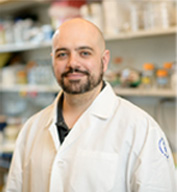
Francisco
Barriga
Memorial Sloan Kettering
Cancer Center
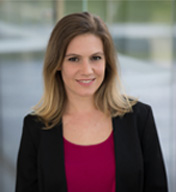
María Eugenia
Dieterle
Albert Einstein
College of Medicine

Leah
Guthrie
Stanford University
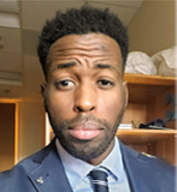
Colwyn A.
Headley
Stanford University
School of Medicine

Luis
Hernandez-
Nunez
Harvard University
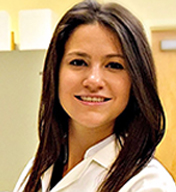
Julieta
Lischinsky
New York University
School of Medicine

Jasmine
Miller-
Kleinhenz
Emory University

Piere
Rodriguez-
Aliaga
Stanford University

Matheus
Victor
Massachusetts Institute
of Technology

Cory
White
Johns Hopkins University
School of Medicine
